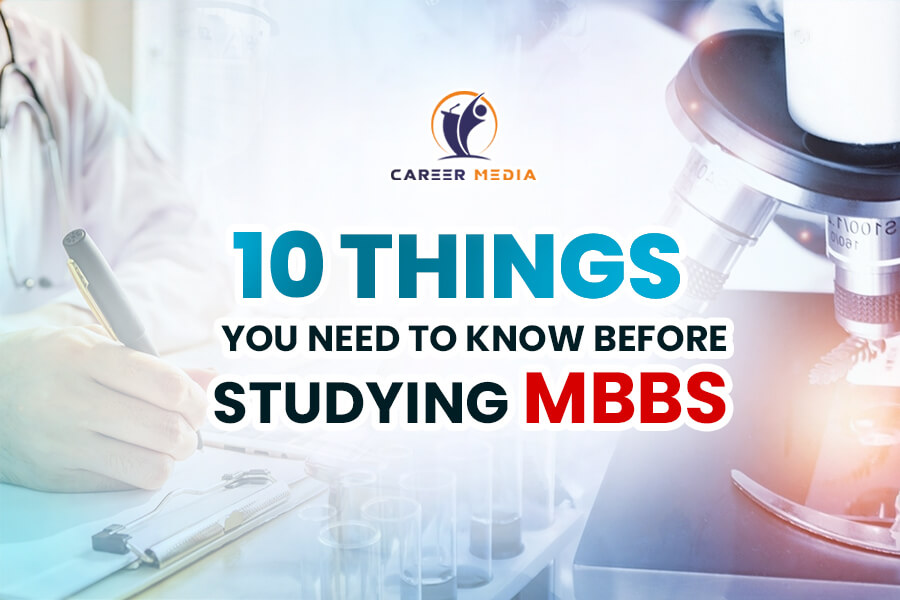10 Things you need to know before studying MBBS

If you're considering pursuing a career in medicine, then studying MBBS is likely to be at the top of your list. MBBS, or Bachelor of Medicine and Bachelor of Surgery, is a professional degree in medicine that prepares students for a career in the field of healthcare. Here are 10 things you need to know before studying MBBS.
MBBS is a long and challenging course
MBBS is a rigorous course that requires a significant amount of dedication and hard work. It is typically a five-year program, and students are required to complete an additional year of internship before becoming licensed doctors. During this period, students are expected to complete coursework, participate in clinical rotations, and take part in practical training sessions.
Entrance exams are a prerequisite
Before you can pursue an MBBS degree, you'll need to pass the entrance exam. Depending on the country or institution, the entrance exam can be quite competitive, with a high number of applicants vying for a limited number of spots.
Understanding of the Human Body is Essential in MBBS
A solid understanding of the human body and its functions is essential for success in MBBS. Before entering the program, it's recommended that students have a strong foundation in biology, chemistry, and physics.
A Strong Work Ethic is Required in MBBS
MBBS is a demanding course that requires a high level of commitment and hard work. It's essential to be prepared to put in the hours required to study and prepare for exams.
Clinical Rotations are an Integral Part of the MBBS Program
Clinical rotations are a crucial part of the MBBS program. During this time, students get to work with real patients under the guidance of experienced medical professionals. It's an opportunity to put theory into practice and develop practical skills.
Practical Skills are Essential in MBBS
In addition to theoretical knowledge, MBBS students must develop practical skills such as patient assessment, diagnosis, and treatment. Developing these skills requires hands-on experience and mentorship.
Effective Communication Skills are Crucial in MBBS
Effective communication is a vital skill in the medical profession. As an MBBS student, you'll be interacting with patients, their families, and other healthcare professionals. Good communication skills are essential to building relationships and providing quality care.
Continuous Learning is Required in MBBS
Medicine is an ever-evolving field, and it's essential to stay up-to-date with the latest research and practices. As an MBBS student, you'll need to be prepared for a lifetime of learning to keep your knowledge and skills current.
MBBS is a Rewarding Career
Despite the challenges, a career in medicine can be incredibly rewarding. As a doctor, you have the opportunity to make a difference in people's lives and contribute to society in a meaningful way.
MBBS is a Huge Responsibility
Becoming a doctor is a massive responsibility. As a healthcare professional, you'll be responsible for people's lives and wellbeing. It's essential to take this responsibility seriously and be committed to providing the best possible care.
Pursuing an MBBS degree is a significant commitment that requires dedication, hard work, and a strong work ethic. It's a rewarding career that offers the opportunity to make a difference in people's lives, but it's also a massive responsibility. Understanding what to expect before entering the program can help you prepare and succeed in your career as a medical professional.



